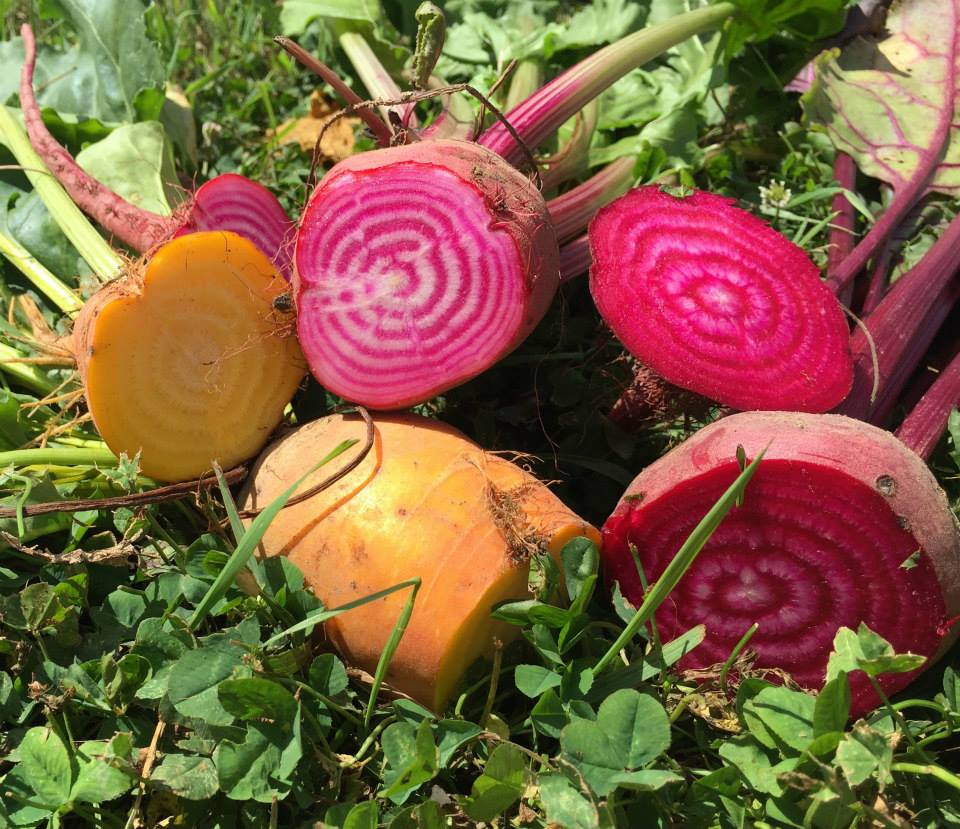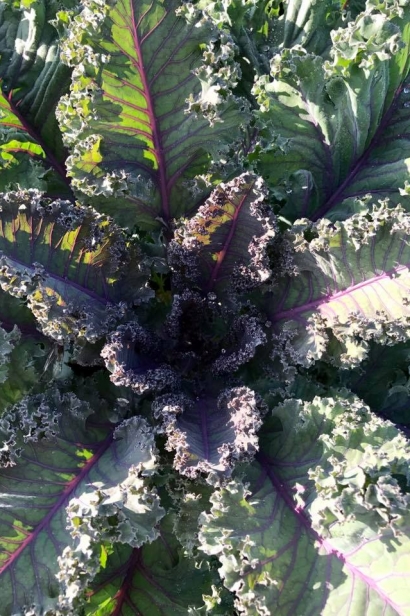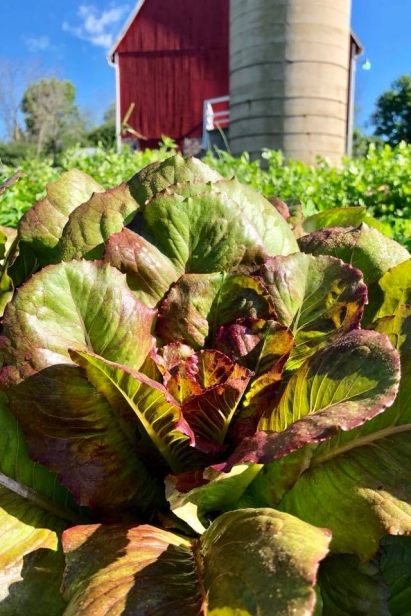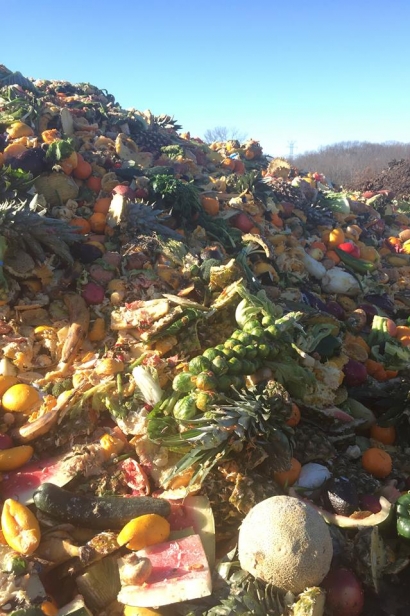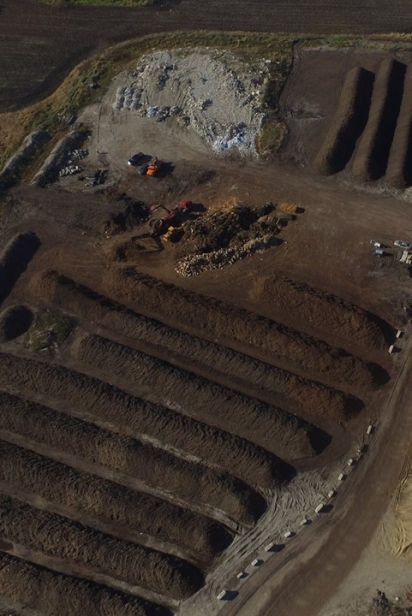Cultivate. Cook. Compost. Repeat.
The culinary habits of Wisconsin adapt and change with each passing year, reflecting national food trends. At the present moment, Wisconsin has made the leap towards supporting local, zero-waste and sustainable establishments. Running a green restaurant is by no means easy, but siblings Dan Wiken and Jill Bunting have cracked the code with their restaurant and farm, Twisted Willow, in Port Washington, Wisconsin.
Dan and Jill originally dreamed of having a bed and breakfast, but as their sustainable philosophy materialized, their vision and business adapted to support their community. The Twisted Willow farm was established in 1860, and was originally used as a dairy farm. Now, Twisted Willow uses old pastures as a garden, where they grow everything from microgreens right in the restaurant to a variety of squash. For six years, Dan has been working on their garden plot and each year the soil gets better and better. Twisted Willow starts all plants from Johnny Seed or Seed Savers, which are heirloom seeds that they sprout and tend for in the restaurant, eventually moving them outside once they are mature. Even dishwashers and bussers help with the planting, harvesting and regular garden maintenance. Jill says, “It’s always great having staff helping with the picking, cleaning and cooking because they can relay their experiences to the guests. A server can tell the guests the stories behind the food, like that morning they had harvested beans that were purple, then when cooked they turned green. It comes full circle, and makes guests excited about the food they’re eating.”
Being at the mercy of Mother Nature, sometimes Twisted Willow relies on other local farmers to outsource produce they can't grow themselves. Dan and Jill depend on Mushroom Mike and Mushroom Steve to forage across northern Wisconsin to find all different kinds of mushrooms. They get honey from Little Mountain Apiaries and watercress located in Port Washington. They also have created a wonderful partnership with Rare Earth Farms located in Belgium, WI, who use the same heirloom seeds as Twisted Willow. Dan and Jill also take trips to the downtown Port Washington Farmers Market and utilize what the local farmers have to offer, greater supplimenting the range of produce they can work with.
When Twisted Willow has an excess of produce that they can’t get through, they will put it outside the restaurant for the community to take. Jill says, “People will take our extra zucchini and make zucchini bread and bring it back for us to try. We are really grateful to be in our Port Washington community.” Twisted Willow's strides toward reducing waste is reflected in how they use the food they work so hard to grow. They repurpose as much of the produce as they can in specials, side dishes and soups. In 2019, Twisted Willow plans to incorporate some biodynamic farming techniques, using the philosophy of Rudolf Steiner that was started 1924. Steiner recognized the importance of the healthy cosmic and earthly influences on plant, animal and human health. Twisted Willow is touching base with the old ways of farming, composting and the full cycle of giving back to the earth.
Growing their own food is just the tip of Twisted Willow’s sustainable iceberg. They also promote their cyclical conservation by maintaining their own compost. They take their scraps from the kitchen and garden and use it in their soil and to feed their animals. Even though having your own compost pile can be an arduous task, it makes all the difference when sustainable efforts are in mind. The zero-waste movement that is currently happening in restaurants around our city is powerful and important, and it is just as important that we personally support these businesses who go the extra mile.
Blue Ribbon Organics has been formulating premium organic compost for 10 full seasons, and owner James Jutrzonka has learned a lot along the way. Originally, James had worked in landscaping and wasn’t having good results with other compost mixtures they used, and he decided to formulate his own. They used the yard waste that they had been collecting and came up with a formula that worked well for their trees, and other people started to approach them and ask if they could drop off their personal yard waste. One man’s trash is another man’s treasure, so James kept accepting yard clippings from locals, as well as organic food waste. A very specific ratio of waste was developed to create their signature organic compost blend. Now, Blue Ribbon Organics has a 16 acre facility in Caledonia, where they formulate compost blends year round.
This large-scale composting operation relies heavily on science and close observation. First, yard and food waste gets run through a grinder and gets broken up into small pieces for an easier decomposition. The debris gets further broken down by bacteria that continually eats and releases waste. Being living organisms, the “billion workers” need to be kept alive by consistently regulated temperature, as well as turning or fluffing the compost mixture to incorporate oxygen. After an average of 6 months of tending to the bacteria-driven breakdown of materials, the compost gets tested for maturity and goes through a screening process to remove any contaminants and sift out oversized organic matter. It is generally pretty easy to eradicate any kind of unwanted bacteria and impurities because of the heat needed to sustain the good bacteria, but all compost is still tested for pathogens like salmonella.
Blue Ribbon Organics’ operation is so advanced that it is possible for them to process more materials than any home-composter could handle. Because of the heat and equipment, Blue Ribbon Organics has the capacity to compost items like cooked meat, bones and even compostable tableware. Perplexingly enough, the stickers found on produce are not compostable, so make sure to remove them from your compost at home!
With spring officially here, it’s a great time to explore and learn more about sustainable food initiatives in Wisconsin. Support businesses who take pride in what they produce, and make continuous efforts to improve our state’s culinary excellence.
Twisted Willow Restaurant
308 N Franklin St, Port Washington, WI 53074
http://www.twistedwillowrestaurant.com/
Blue Ribbon Organics
1137 27th St, Caledonia, WI 53108


